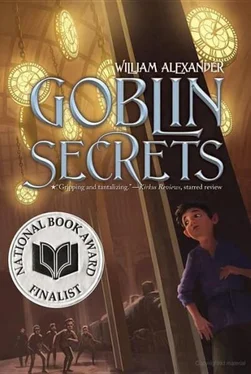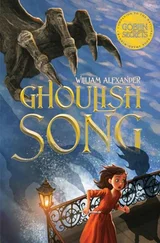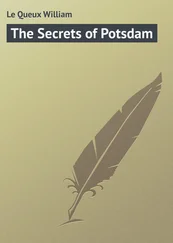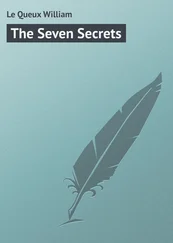“That’ll make the hair stick out in all directions,” Essa explained. “She’s playing the ghost, and she needs the ghost hair to flow as though moved by wind between worlds, so she shellacs it with egg whites first.”
“I should have been doing this last night, yes,” Semele said. She lifted the mask to regard her handiwork, and then added more transparent goop to the hair. “It will be droopy by the time we are finished with the walking.”
Rownie wondered what “the walking” was, so he asked. “What walking?”
Thomas tapped the floor of the wagon with his cane, and he smiled a sly smile. “Rownie, we will now accomplish a very great mystery of our profession, something ancient and grand. We will mask ourselves and walk through the streets of Zombay, to the site of our performance. We will each walk alone, by several routes, and in this way we will find our audience. Those who take notice of you as you pass, those who follow to see where you will lead—without attempting to, say, arrest you— they are our audience. We will each of us lead them down to the docks and upstream to the very last pier of the Floating Market. Nonny will ride on ahead and meet us there with the stage itself. Do you know the way?”
Rownie nodded, because he did.
“Do you know several ways?” Thomas pressed him. “Will you lose yourself, once separated from the rest of us?”
“No,” Rownie said. “I won’t get lost. I don’t get lost.” He didn’t always know where home was. Home used to be a shack that moved all over Southside, according to Graba’s whim. But he always knew where he was in Zombay.
He wondered if Graba had already picked up the shack and moved it elsewhere. She probably had. It might be very far away, up in the hills of the southernmost part of the city. It might be very close. She might have leaned it up against the litchfield wall, near the gate, just outside. She might have moved it anywhere.
“Good,” said Thomas. “Remember, Rownie—and all the rest of you—that what we do is important. This is a mystery of our craft. Carry yourselves with appropriate poise.”
“This is what we always do whenever we forget to put up posters,” Essa whispered to Rownie. “Nobody would know about the show, otherwise.”
Thomas pretended not to hear her, even though her whispering voice still carried. The old goblin took off his big black hat and pulled from it a mask with a high forehead and an iron crown. This was for himself. He also took out a smaller hat and a pair of gloves, and gave both to Rownie.
“Put these on,” he said, “and the fox mask with them. You might also leave that tattered coat behind.”
Rownie refused to take off his coat, but he put on the hat, the gloves, and the mask. The fox face smelled leathery, and it pressed oddly on the skin of his face. His nose itched. Then he stopped focusing on the mask, and looked through it. He saw his surroundings through fox eyes.
“Don’t slouch,” Thomas told him. “Not at all. Foxes are small, smaller than you are, but they do not slouch. Neither do actors. Stand and move with purpose. Move the way the mask would prefer you to move.”
Rownie wasn’t sure how the mask wanted to move, but he tried to stand up straight.
“Good,” said Thomas.
The mask slipped down Rownie’s face a bit. He tried to straighten it. Then he tried to ask whether he had it on properly, but Thomas shushed him.
“Don’t speak while masked,” the old goblin said. “Not if you can possibly help it.”
Rownie took off the fox face. “Why not?” he asked. “I had lines to say when I was playing a giant.”
“You did,” said Thomas. “You delivered them with a certain amount of untrained talent—and that is why.”
Rownie blinked. He didn’t understand, and he wasn’t willing to shelve his lack of understanding this time. “I shouldn’t talk while masked . . . because I’m good at it?”
“Quite right,” said Thomas. “As with a charm or a chant, the world might change to fit the shape of your words. Your own belief becomes contagious. Others catch it. You believed yourself a giant when you spoke as a giant, and so you became one. Your audience regarded you as one. They knew better, but they believed it anyway.”
“I got taller?” Rownie asked.
“Everyone thought so,” said Thomas, “so please don’t declaim anything at all while wearing another face—most especially anything about yourself . Don’t say any lines Semele did not write for you. And remember, always remember, that curses and charms have consequences. You set yourself apart from the world by changing the shape of it.”
Essa put on both of her masks, one on top of the other. “The morning’s wasting away,” she said, trying to sound patient but not succeeding.
“Quite right,” said Thomas. “Mask yourselves, everyone. And pay careful attention for any glimpse or news of young Rowan. Apart from the Fiddleway, the docks are the second best place in the city to hide.”
Semele gave the egged hair of her own mask one final tug, and then put it on. Thomas and Patch did the same with their own. Rownie peered through fox eyes again. He tied the string above his ears and behind his head.
“Be on your several ways,” said Semele.
“Break your face, everybody!” said Essa. She said it with so much hope and cheer that Rownie was sure he must have heard her wrong.
They left the wagon. The sun was up and bright. It had already burned away most of the morning fog.
Nonny waved from the driving bench, and then set off. The rest followed on foot, through the litchfield and through the gates. Rownie looked around for Graba’s shack. He did not see it. Maybe she had taken it up into the hills. Maybe she was nowhere nearby.
The troupe separated, moving down different streets and alleys to the east and south. Semele took Rownie’s gloved hand before he could choose his own way.
“Take care,” she said behind the high cheekbones and waving hair of her ghost face. “If anyone puts a hand to you, run. It will mean that they know you are not Tamlin. UnChanged folk do not touch Tamlin, as a rule. They seem to believe that it would give them freckles. You will be mistaken for Tamlin, and this should keep you safe, yes. But take care. While masked you will also be vulnerable to changes .”
Rownie held the old Tamlin’s hand, to show that he wasn’t afraid of freckles—but he wasn’t at all sure what she meant by vulnerability to change. “Is that bad?” he asked.
“It all depends,” Semele said. She seemed to be smiling under the ghost face, but of course he couldn’t tell.
She turned and went her own way. Rownie chose his.
All roads to the docks ran downhill. They wound and switchbacked across a steep ravine wall, with Southside above and the River below. Some of these streets were so steep and narrow that they had to be climbed rather than walked on. Stairs had been cut into the stone or built with driftwood logs lashed together over the precarious slope.
Rownie took these staircases on his own way down to the Floating Market. He remembered dockside errands he had run for Graba—mostly picking things up or bringing things down, and usually without ever knowing what the things were that he had carried. Pick up a small package from a barge woman missing her left ear, Graba might say. Bring it back to me, now—but never be peeking inside it, and make sure it’s her left ear that’s missing.
Rownie and Rowan used to run the dockside errands together. Rowan would usually have a spare coin or two, earned by singing on the Fiddleway or doing odd jobs for the stone movers near Broken Wall. He would use it to buy each of them some breakfast—a greasy fish pastry or a strange piece of fruit from foreign places—and then the brothers would eat their breakfast while sitting on some unused stretch of pier, dangling their legs over the side and watching the barges sail by.
Читать дальше












